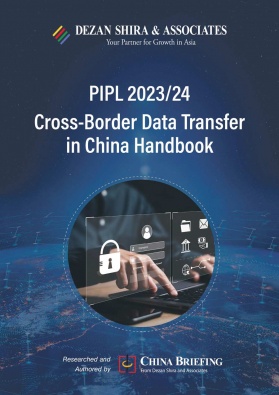China’s Six-Year Rule for Foreigners: 2024 IIT Payment Highlights
China amended its individual income tax (IIT) system in 2019, introducing a “six-year rule” to determine the tax responsibilities of foreigners for their overseas income in China. 2024 marks the first year that this rule is applicable. In this article, we provide a comprehensive overview of the “six-year rule” and practical solutions for effective tax management.
Under China’s amended IIT system, foreign individuals who do not have a domicile but reside in China for 183 days or more per calendar year are considered tax residents. If a foreign individual remains a tax resident in China for over six years, they will be taxed on their global income, including income sourced outside China and paid by overseas parties. This is the so-called “six-year rule”.
Given China’s comparatively high tax rates for high-income individuals—35 percent for individuals with annual taxable income over RMB 660,000 (approx.US$90,000) to RMB 960,000 (approx.US$130,000) and 45 percent for individuals with annual taxable income over RMB 960,000 (approx.US$130,000)—foreigners usually try to avoid being subject to IIT in China for their overseas income.
Under such circumstances, 2024—the first year that meets the ‘six-year rule’—serves as an important year for foreigners to double-check their tax residence and liabilities in China and explore solutions to reset the six-year period.
How to count the “six-year rule” period?
On March 16, 2019, China’s Ministry of Finance (MOF) and State Taxation Administration (STA) published the Announcement on the Criteria for Determining the Residence Time of Individuals without Domicile in China (MOF STA Announcement [2019] No. 34), which explains how the tax residency of foreigners in China will be calculated.
The announcement clarifies, among other things, when tax authorities will begin counting days spent in China for the purposes of enforcing the “six-year rule”:
- The number of years of residence to calculate the six-year rule will be determined beginning on January 1, 2019. The number of years spent in China before 2019 will not be included in the calculation.
- A foreigner is deemed to have spent a year in China if he or she stays in the country for at least 183 days within a given calendar year.
- Those who stay in China for less than 24 hours within a single day will not be counted as having a day of residence.
Example
Mr. Li is a Hong Kong resident who works in Shenzhen city. He goes to Shenzhen to work every Monday morning and returns to Hong Kong every Friday evening. On Mondays and Fridays, he stays less than 24 hours in the Chinese mainland, so the two days are not counted as being full days spent in China for tax purposes.
In addition, Saturdays and Sundays are not counted either, because Mr. Li spends them in Hong Kong. That means that although Mr. Li works in the Chinese mainland during the weekdays, for tax purposes he is only counted as being in the Chinese mainland for three days.
If we count 52 weeks in a year, Mr. Li will be staying in the Chinese mainland for 156 days – less than the 183 days needed to be considered a tax resident. As a result, all of Mr. Li’s income from overseas (including Hong Kong) will be tax-exempt in the Chinese mainland.
How do we reset the “six-year rule” period?
The MOF STA Announcement [2019] No. 34 also clarified that if in any of the previous six years, the total number of days a foreigner has resided in China is less than 183 days or if he/she has left China for more than 30 consecutive days, the income earned from outside China and paid by foreign entities or individuals in that tax year is exempt from IIT.
That is to say, foreigners can reset the six-year period by:
- Residing in China for less than 183 days that year; or
- Leaving China for more than 30 consecutive days.
Example
Mr. Rice moved to Shanghai on January 1, 2015, and still works there today. If we count the times Mr. Rice stayed in Shanghai for over 183 days in a year, he has exceeded six years in the Chinese mainland. Despite this, because all years before 2019 were cleared from the count, the counting of years spent in China only started from January 1, 2019.
As a result, even though Mr. Rice has been living in China since 2015, he will only be taxed on his worldwide income starting in 2025. However, to avoid this exposure to taxation on worldwide income in 2025, Mr. Rice decided to spend January and February 2024 in Hong Kong.
By doing so, Mr. Rice has left the Chinese mainland for over 30 consecutive days, thereby resetting the clock.
How will foreigners be taxed after reaching the “six-year rule”?
If, starting from any year in 2025, a foreign individual has resided in China for a cumulative total of 183 days in each tax year over the previous six years and has not left China for more than 30 consecutive days in any given year, then that individual should be taxed in China on their global income for that year.
Example
Mr. Wrest moved to Beijing on January 1, 2019. Except for leaving China for two months in 2025, Mr. Wrest’s days of residing in China in any given calendar year has reached 183 days and he never left China for over 30 days. Mr. Wrest’s tax liability in China during 2019 and 2026 are as follows:
| Year | Count of “six-year rule” period | Tax liability |
| 2019 | 1st year |
|
| 2020 | 2nd year |
|
| 2021 | 3rd year |
|
| 2022 | 4th year |
|
| 2023 | 5th year |
|
| 2024 | 6th year |
|
| 2025 | Clock-reset |
|
| 2026 | 1st year |
|
In the above example, Mr. Wrest left China for more than 30 days in the 7th year instead of the 6th year. As a result, the “six-year rule” has been triggered, and he will be subject to China’s IIT for his worldwide income in 2025. His two-month period spent outside China in 2025 will only break his IIT liability for his worldwide income starting from 2026.
Another thing to be noted is that: Overseas income is not limited to employment income, but all incomes that are subject to IIT under China’s IIT Law, including:
- Overseas income from wages and salaries;
- Overseas income remuneration for personal services;
- Overseas income from author’s remuneration;
- Overseas income from royalties;
- Overseas income from business operation;
- Overseas income from interest, dividends and bonuses;
- Overseas income from the lease of property;
- Overseas income from the transfer of property; and
- Contingent income.
Unless foreign personnel indeed do not have the aforementioned income abroad, they and their employers are still recommended to properly arrange their days of residing in China and departure time, to avoid being caught by the “six-year rule”.
For more information on China’s individual income tax system and the “six-year rule”, please navigate our Doing Business in China portal.
The information provided is for general purposes only and may not account for local variations. No liability is assumed for the completeness or accuracy of the information. For personalized advice on specific business queries, consult our experts at Dezan Shira & Associates by emailing China@dezshira.com.
About Us
China Briefing is one of five regional Asia Briefing publications, supported by Dezan Shira & Associates. For a complimentary subscription to China Briefing’s content products, please click here.
Dezan Shira & Associates assists foreign investors into China and has done so since 1992 through offices in Beijing, Tianjin, Dalian, Qingdao, Shanghai, Hangzhou, Ningbo, Suzhou, Guangzhou, Haikou, Zhongshan, Shenzhen, and Hong Kong. We also have offices in Vietnam, Indonesia, Singapore, United States, Germany, Italy, India, and Dubai (UAE) and partner firms assisting foreign investors in The Philippines, Malaysia, Thailand, Bangladesh, and Australia. For assistance in China, please contact the firm at china@dezshira.com or visit our website at www.dezshira.com.
- Previous Article China-ASEAN Trade and Investment Relations
- Next Article China’s IP Protection Development: A Comprehensive Overview























